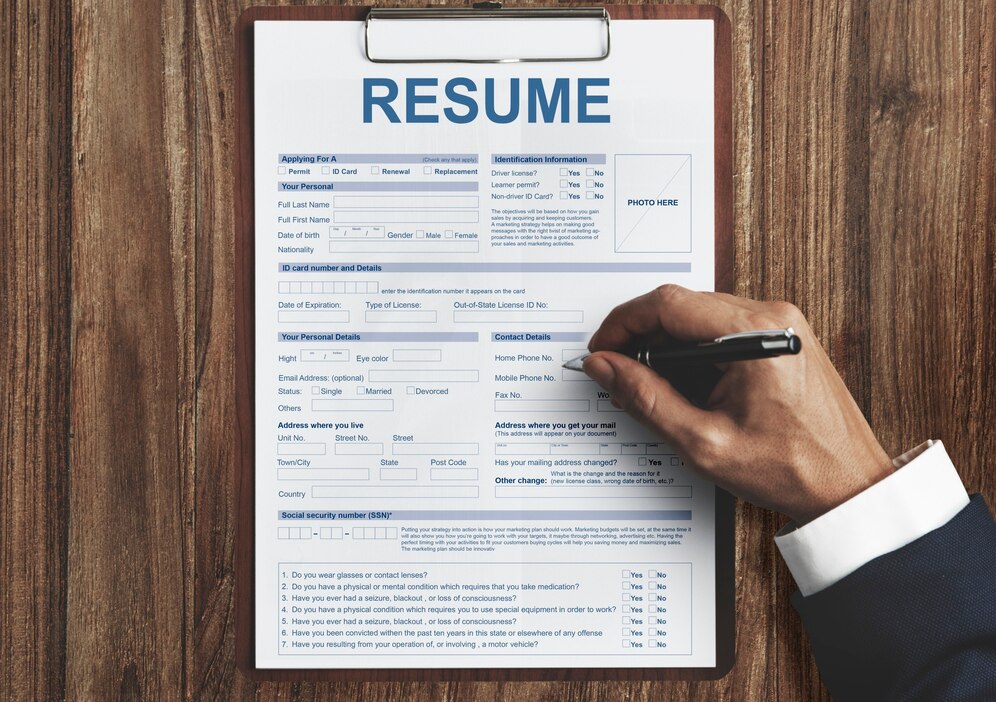When you are creating a tech industry CV, it is recommended to be specific.
CV is the first point of contact with every client where you can sell yourself as a technologist. So, make sure to include the right information for the position you are applying for.
A report given by The PHA Group says that,
- The UK technology sector ranks third globally. It was recorded worth $988 billion in 2022.
MOL Learn gave another report that said,
- The UK technology industry adds £41.5 billion to the country’s economy.
- It is estimated to create 678,000 jobs by 2025.
This statistical analysis represents a surge in the tech sector. For several applicants applying for tech jobs, making a unique CV is a promising need. This guide will inform the reader of some essential tips and tricks to design your CV for the tech industry.
However, if you want to stand unique among all competitors, obtain a CV writing service from a professional. Thanks to their expertise, they know how to present your skills and background. They can portray it in an interesting yet concise way that can grab the attention of hiring managers.
How Do I Write A CV For the Tech Industry? Top 8 Expert Tips

When a recruiter opens up your tech industry CV, he has only 6 seconds to judge your expertise. If you stuff it with irrelevant information, those 6 seconds can be wasted in reading it and then considering you as needing to be aligned with the interest.
The tech professionals are in high demand. Due to increasing competition, a standard CV for tech industries would not be able to gain a cutting edge. A resume is more than a document listing your expertise. You need to present the highlights creatively so that the manager can think of calling you for an interview. To implement it effectively, the tips below can assist the intent.
1. Tailor It to Specific Companies
When recruiters scan your resume for the Tech Industry, they look for the specific keywords. If these keywords are mentioned in your resume, they will be taken out among others. So, make sure to add these keywords to it. Write them in bold letters to highlight your key expertise.
2. Create a Technological Skills Section
Are you looking for a way that how do you list tech skills on a CV? Making a separate technology section in the tech industry CV can be the best way to go regarding this. Place it right below your introduction and summary section. You can write it in bullet points and mention the specific tools or software used there.
Also, mention your expertise in using various technological tools. Remember to mention your skills in using both hardware and software.
3. Mention Expertise in Bullet Points
Most of the students make mistakes there. They do not differentiate their tech industry resume from the cover letter. A CV is only meant to highlight the key expertise. You are not supposed to write the details of each point.
However, in the cover letter, you will explain all the bullet points you mentioned in your CV. The recruiter does not have time to read this big block of information in the tech industry CV. Stick to the point to grant ease and enhance your chances of getting selected for an interview call.
4. Don’t Make It Longer Than One Page
Once again, it’s about the effective presentation of a tech industry CV. Writing long will increase the length, and the CV will exceed more than one page. A manager is likely not to turn the page to read the information mentioned on page number 2.
It might also be possible that the most relevant expertise is mentioned on the 2nd page. To avoid the trouble, be concise about font size and type to fit all the information on one page.
5. Get The Formatting Right
You can submit your resume in whichever format you like. However, it is recommended to be submitted in pdf or Word document. Make sure the presentation must be in the document type that is required by the uploading tool. Furthermore, cross-check the job description as it is considered the most preferred format in the whole tech industry CV structure.
6. Don’t Embellish It
You may want to embellish your CV, but it can be done elsewhere. As we have discussed above, the tech CV must be specific and balanced. The simpler and clearer it is, the better it looks. This sort of creativity and storytelling can be practised in other documents such as cover letters and portfolios. For more clarification, get some Tech industry CV writing ideas from previous samples. You will understand how simplicity is crucial for each sample.
7. Use AI Tools and Software to Better the Presentation
There are several tools available that can help you design a tech industry CV beautifully. It may include Canva, CakeResume, etc. Remember that an over-designed resume is prone to get rejected first-hand. The use of vibrant colours is great but don’t ignore the simplicity and clarity behind it. The document must be scannable afterwards.
8. Prove Your Abilities
Simply listing your key expertise in the tech industry CV does not seem sound. The recruiter may be suspicious that you just write about it. In practice, you have not done anything productive in the industry. That’s why there is a need to prove your skills.
You may mention your previous experience, the company name, and the great benefit that sector got out of your service. Try to use specific terminology to describe it so that the manager can get an idea about your previous work.
Tech Industry CV Examples
The UNC gives an example of a tech industry CV template. You may not align with the expertise provided below. However, get an idea and design your CV accordingly. If you need more than the template to write your bio specifically, search for your town’s top CV writing services. These experts understand the competitive market well enough to design your resume efficiently. Taking expert assistance might be the best career decision you ever made.
Conclusion
There is no doubt that the tech industry sector is expanding. That’s why it is introducing several jobs to the applicants, for such students, making a tech industry CV is crucial. The way you will be preferred among all other candidates is highly dependent on your resume.
To beat the increasing competition, the above-mentioned key tips are helpful. Present your key skills efficiently and get ready to be called for the proceeding by the HR manager.
Read Also:
- How to Start Your Career as a Financial Advisor?
- Top 7 Things To Take Into Consideration When Selecting Essay Writing Service
- 6 Ways to Achieve an Essay Writing Task Successfully























